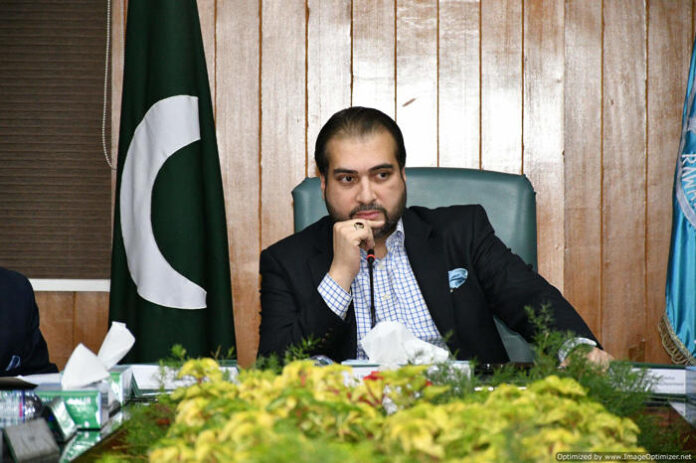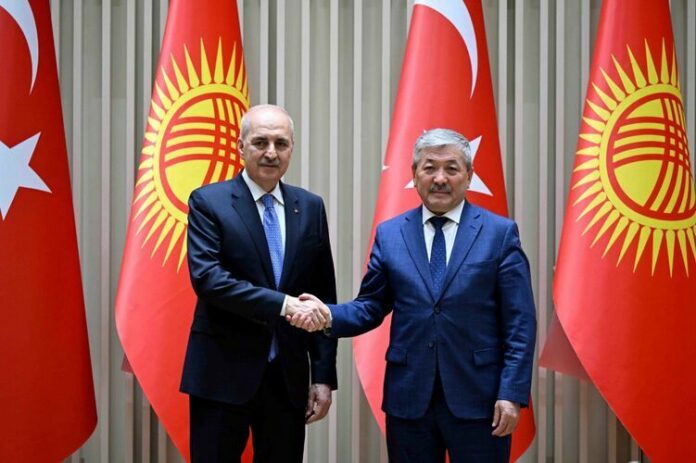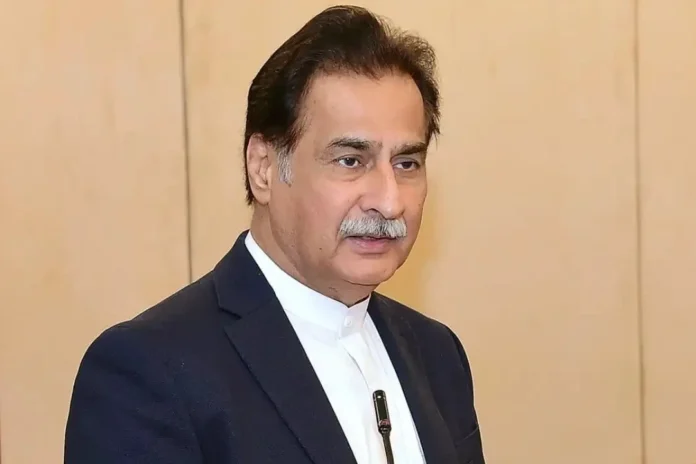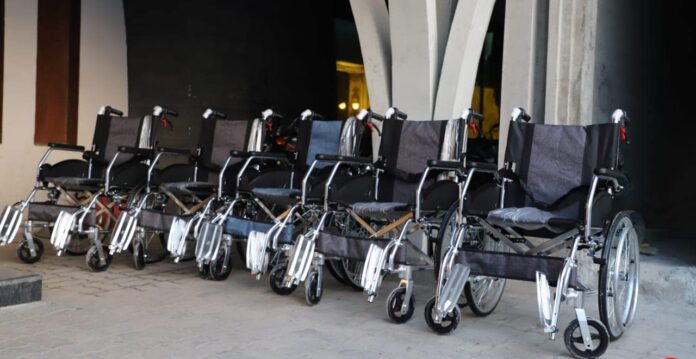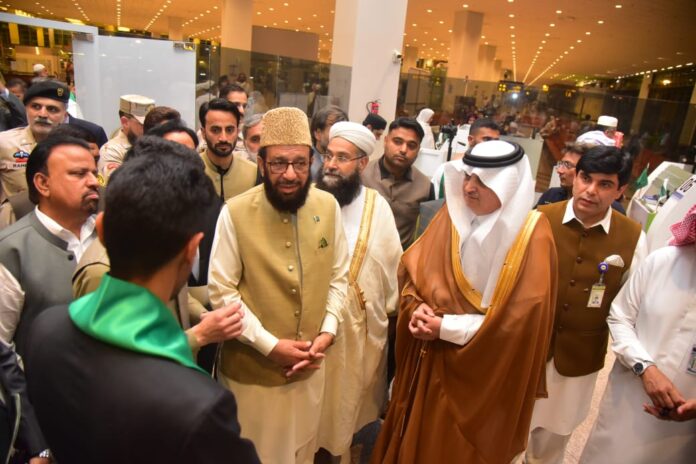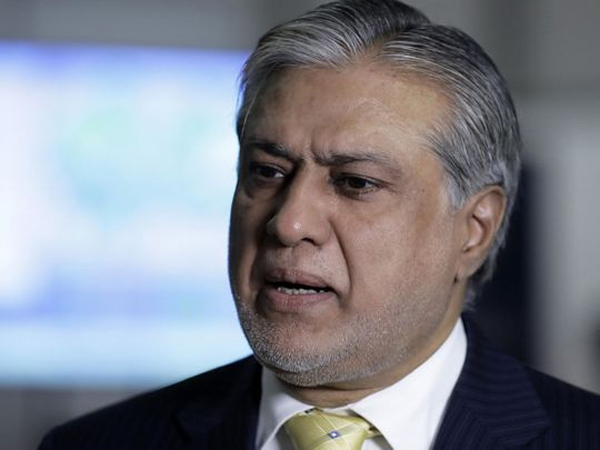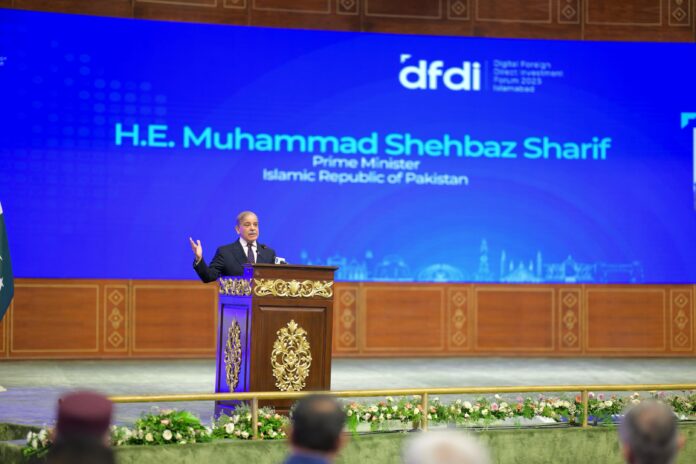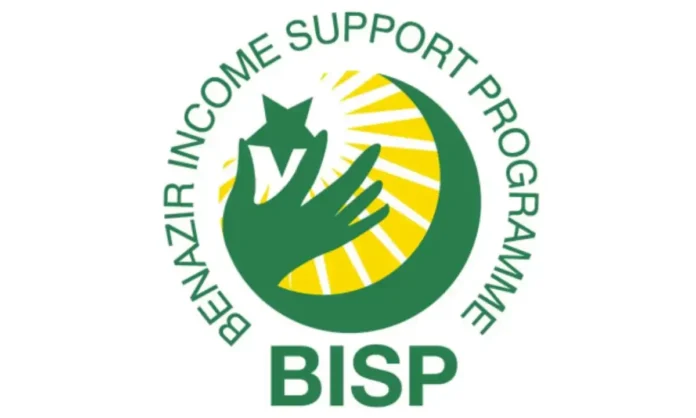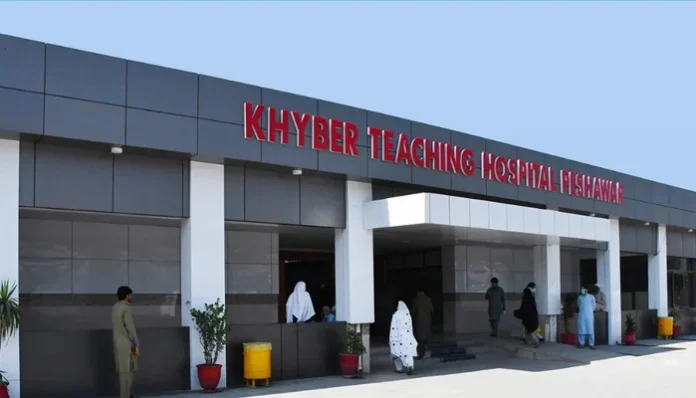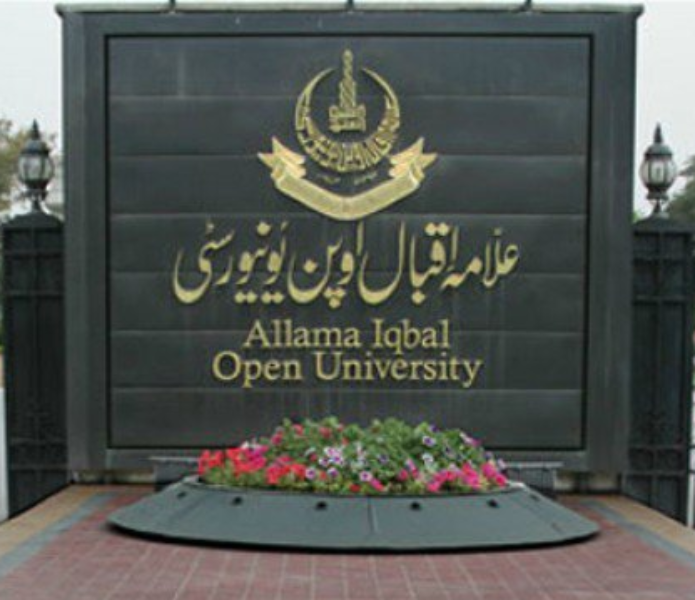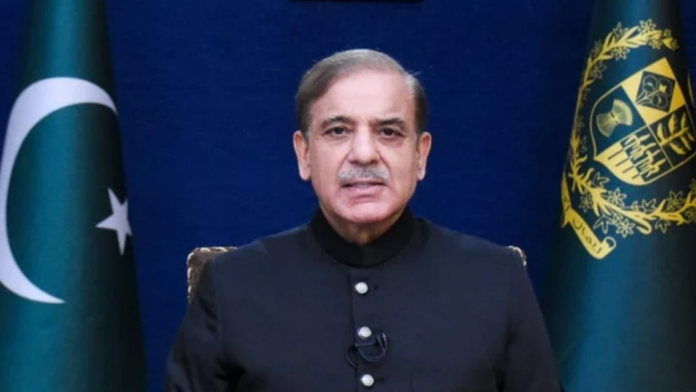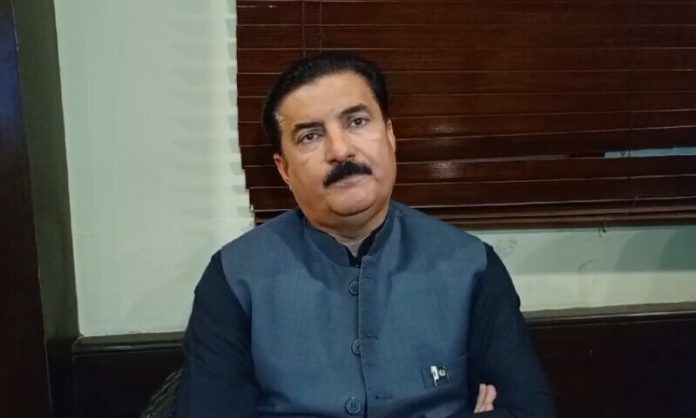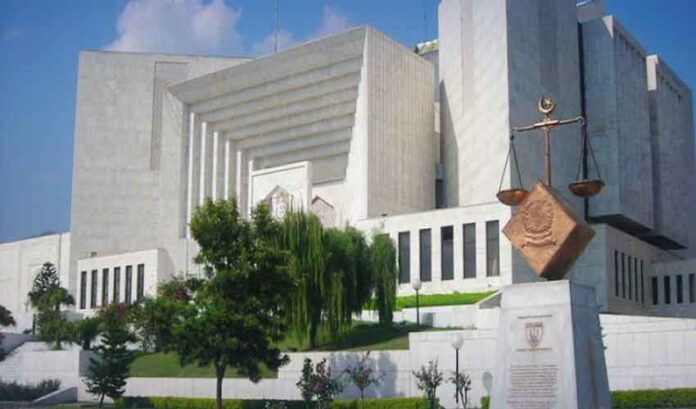Haripur Wildlife Division faces manpower shortage and operational crisis
Punjab minister chairs workshop on sesame cultivation and value addition
Kyrgyzstan, Turkiye aim to increase trade turnover to $5 billion
Bishkek, April 29 (Kabar/APP) : A meeting was held in Bishkek between Chairman of the Cabinet of Ministers – Head of the Presidential Administration of Kyrgyzstan Adylbek Kasymaliev and Speaker of the Grand National Assembly of Turkiye.
The Cabinet reported that a wide range of bilateral cooperation issues were discussed during the meeting, with an emphasis on trade and economic relations.
The chairman of the Cabinet emphasized Kyrgyzstan’s interest in further developing cooperation with Turkiye in various sectors, including agriculture, energy, light industry, processing and mining.
“We are seeing positive dynamics in bilateral relations and reaching a trade turnover of 1 billion US dollars. We have an ambitious but achievable goal set by the leaders of our countries – to bring this figure to 5 billion US dollars in the coming years,” said Adylbek Kasymaliev.
He also spoke about the priorities of the Cabinet of Ministers of the Kyrgyz Republic in the field of creating a favorable investment climate, developing the private sector, eliminating administrative restrictions and improving legislation.
The head of the Cabinet emphasized the important role of the Kyrgyz-Turkish Intergovernmental Commission on trade and economic cooperation, co-chaired by the head of the Cabinet and Vice President of Turkiye Cevdet Yilmaz.
During the meeting, issues of the banking sector and regulation of migration processes were also discussed.
In turn, Numan Kurtulmuş confirmed Turkiye’s commitment to further strengthening comprehensive ties with Kyrgyzstan, noting the readiness to increase the volume of bilateral trade.
ICT Police nab 16 suspects, seize illegal weapons & narcotics
Ayaz expresses satisfaction over unanimous decisions of CCI
350 wheelchairs distributed to hospitals under PPHI Sindh
First Hajj Flight of 2025 departs from Islamabad with 427 Pilgrims
ISLAMABAD, Apr 29 (APP): Pakistan’s Hajj 2025 operations officially began on Tuesday morning with the departure of the first Hajj flight from Islamabad to Madinah.
The inaugural flight, PK-713, took off at 5:21 AM, carrying 427 pilgrims who will perform the sacred journey in the Kingdom of Saudi Arabia.
A special ceremony was held at Islamabad International Airport to mark the occasion. Federal Minister for Religious Affairs, Sardar Muhammad Yousaf, and the Ambassador of Saudi Arabia to Pakistan, Nawaf bin Saeed Al-Maliki, were present to see off the pilgrims. Other prominent attendees included Secretary of the Ministry of Religious Affairs Zulfiqar Haider, renowned religious scholar Maulana Tahir Ashrafi, CEO of Pakistan International Airlines (PIA), the Chief Operating Officer/Airport Manager, and the Director of Hajj.
As a gesture of goodwill and blessing, the pilgrims were presented with copies of the Holy Quran, fresh roses, and chocolates before departure. The Pakistan Airports Authority (PAA) made special arrangements to ensure a smooth and comfortable experience for the departing pilgrims, including the setup of a dedicated Hajj lounge at the airport.
The ceremony reflected the strong ties between Pakistan and Saudi Arabia and underscored the government’s commitment to providing quality services to pilgrims during the Hajj season. Further flights are scheduled in the coming days from various cities across the country as part of the national Hajj operation.
This marks the beginning of what is expected to be a smooth and spiritually fulfilling Hajj journey for thousands of Pakistani pilgrims heading to the holy land in 2025.
DPM/FM Dar talks to FM Hungary; rejects India’s baseless propaganda
ISLAMABAD, April 29 (APP): Deputy Prime Minister/Foreign Minister, Senator Mohammad Ishaq Dar Tuesday held a telephone conversation with Minister of Foreign Affairs and Trade of Hungary Peter Szijjarto.
The DPM/FM apprised him on the current regional situation and strongly rejected India’s baseless propaganda and unilateral illegal actions against Pakistan, specifically holding Indus Waters Treaty in abeyance – a clear violation of international law, Foreign Office Spokesperson said in a press release.
Reaffirming Pakistan’s commitment to promote peace and stability, Dar emphasized Pakistan’s resolve to defend its national interests.
FM Szijjarto underscored the importance of de-escalating the situation through dialogue and peaceful resolution of issues.
The DPM/FM also appreciated the excellent momentum in bilateral relations after Szijjarto’s recent visit to Islamabad.
PM hails $700m pledges in new foreign investment in IT sector; reaffirms commitment for digital Pakistan
ISLAMABAD, Apr 29 (APP): Prime Minister Muhammad Shehbaz Sharif on Tuesday hailed around $700 million pledges in new foreign investment in the Information Technology (IT) sector and called on international stakeholders to continue supporting Pakistan’s journey as it was ready to lead global digital economy.
The prime minister addressed the Digital Foreign Direct Investment (DFDI-2025) Conference here, declaring that Pakistan is “not waiting for the future, but shaping it.”
The conference, attended by global tech leaders, investors, and innovation champions, marked a significant step in Pakistan’s emergence as a key player in the global digital economy.
Prime Minister Shehbaz Sharif, in his inaugural keynote address, shared insights from his four decades in public service, observing the “sea change in global dynamics driven by digital transformation.”
He reaffirmed the government’s commitment to positioning Pakistan as the next major tech destination in the world.
“Our youth, aged between 15 and 30, constitute 60% of the population. They are the architects of our digital future,” said the prime minister.
He highlighted the government’s strategic initiatives including the launch of federal and provincial IT parks, incubation centers, and a large-scale R&D ecosystem.
He announced a new partnership with global technology giant Huawei, which will train 200,000 boys and girls annually through a joint skill development program.
He said that in March this year, Pakistan received a record-breaking $4.1 billion in foreign remittances, signaling growing trust in the country’s digital potential.
“We’re not just building a digital economy—we’re creating a digital Pakistan. From transforming agriculture through AI to expanding exports with smart technology, this is the moment for global investors to join us,” he said.
Prime Minister Shehbaz also invited the world to invest, guide, and grow with with Pakistan. Together, we will make Pakistan a leading light in the digital era,” he added.
In her address, Minister for Information Technology and Telecommunication, Shaza Fatima Khawaja highlighted Pakistan’s exponential growth in IT exports, an evolving regulatory landscape, and the development of a robust digital infrastructure.
“Pakistan’s youth — over 100 million strong — is our greatest digital asset. Under the prime minister’s direct supervision, we have trained over 300,000 young professionals in IT skills this year alone,” she noted.
Deemah AlYahya, Secretary-General of the Digital Cooperation Organization, praised Pakistan’s ambition and innovation:
“This is a historic moment where ambition, innovation, and opportunity converge. Digital transformation is now a revolution, not a trend and with 142 million broadband subscribers, 65% smartphone penetration, and IT exports poised to exceed $4 billion, the country is primed for digital acceleration.”
CEO of Pakistan Software Export Board, Abu Bakar siad that IT exports were set to exceed $4 billion this year — a testament to public-private collaboration and national talent.
At the inaugural session, Prime Minister Shehbaz Sharif presented a special memento to Deemah AlYahya and thanked all participants for their commitment to Pakistan’s digital rise.
BISP initiatives lauded
17 criminals held with contraband
KTH achieves major breakthrough in Stroke Care
AIOU awards scholarships and grants to 251 outstanding students
Crackdown launched against illegal stone-crushing plants
PM congratulates newly elected Canadian PM Carney
ISLAMABAD, April 29 (APP): Prime Minister Muhammad Shehbaz Sharif on Tuesday extended his felicitations to Mark Joseph Carney on his election as the Prime Minister of Canada and to the Liberal Party on their success in the recently held elections in Canada.

““Congratulations to Mark J Carney on his election as the Prime Minister of Canada, and to the Liberal Party on their success in the recently held elections. Pakistan and Canada enjoy warm and friendly relations and we are proud of the vibrant Pakistani diaspora in Canada,” the prime minister posted on X handle.

He said that he looked forward to working together with Prime Minister Carney to further deepen their partnership and create greater opportunities for their nations.
According to Tuesday projections by the Canadian broadcasters, the Liberal party won Canada’s federal election, while opposition leader Pierre Poilievre also conceded defeat.
https://x.com/cmshehbaz/status/1917166586684924063?s=46&t=SApcAZAv0zK56lMSgiF_fg
Gold price up by Rs.2,100 to Rs.349,200 per tola
SC adjourns hearing on IHC Judges’ transfer and seniority case
ISLAMABAD, Apr 29 (APP): The Supreme Court’s constitutional bench on Tuesday adjourned the hearing of the Islamabad High Court judges’ transfer and seniority case until Wednesday. The petitioners’ counsel, Munir A. Malik, will continue his arguments tomorrow.
The five-member constitutional bench, headed by Justice Muhammad Ali Mazhar, heard the petitions challenging the transfer and seniority of three judges of the Islamabad High Court. The bench also included Justice Naeem Akhtar Afghan, Justice Shahid Bilal Hassan, Justice Shakeel Ahmed, and Justice Salahuddin Panhwar.
During the proceedings, Justice Mazhar asked counsel Munir A. Malik whether he had submitted his rejoinder. Malik replied that he had not yet done so but would file it soon after consulting his clients.
Arguing before the bench, Munir A. Malik stated that Article 200 of the Constitution pertains to temporary transfers. He began by referencing the historical context of judicial transfer provisions, starting with the Government of India Act 1935, which contained no clause for judicial transfers. The 1956 Constitution introduced such a clause, allowing the President to transfer judges in consultation with the Chief Justices of both High Courts. These transfers were either temporary or for a specified period.
Malik elaborated that even under the 1962 Constitution, transfers were time-bound. In the 1973 Constitution, Article 202 governed the terms and benefits of transferred judges. He argued that after the 18th Constitutional Amendment, Article 200 implied only temporary transfers. He emphasized that Clause 2 of Article 200 allows temporary transfers and noted that the 26th Amendment did not alter this provision.
Malik also pointed out that even under the 1935 Act, transferred judges were required to take an oath before assuming office, a practice that still holds. He stressed that Article 200 cannot be interpreted in isolation and must be read alongside Articles 2A and 175A, which ensure judicial independence and establish procedures for judicial appointments.
He added that in 1976, Article 200 was amended to define a one-year transfer term, which was extended to two years in 1985. Earlier constitutions and the 1935 Act required the judge’s consent for transfer, but this was removed in 1985, and a provision was added to consider a judge retired if he refused the transfer.
Malik emphasized that transfers must be made in the public interest and cannot be used as a punitive measure. In response to a query by Justice Shahid Bilal Hassan about the length of a temporary transfer, Malik stated that historically it was set at two years. However, Justice Mazhar observed that the current Constitution does not specify any such duration, which could imply an indefinite term.
Malik argued that if a judge is transferred without consent, the two-year limit should apply. Justice Mazhar remarked that it could also mean that a judge may accept a transfer for an indefinite period.
Malik highlighted that before the recent transfers, five judicial positions in the Islamabad High Court were vacant. As per the Constitution and judicial rules, nominations for vacant seats must come from the Judicial Commission. The appointment of a permanent judge cannot proceed without the Commission’s recommendation.
Justice Mazhar noted that the appointment process for permanent judges is laid out in Article 175A and added that the bench had agreed not to interrupt Malik during his arguments. Instead, a dedicated session for questions and answers will follow once he concludes.
Malik acknowledged the arrangement and remarked that, unlike in Pakistan, judicial transfers in India are routine and impartial.
The court later adjourned the hearing until Wednesday, with Malik scheduled to continue his arguments.


